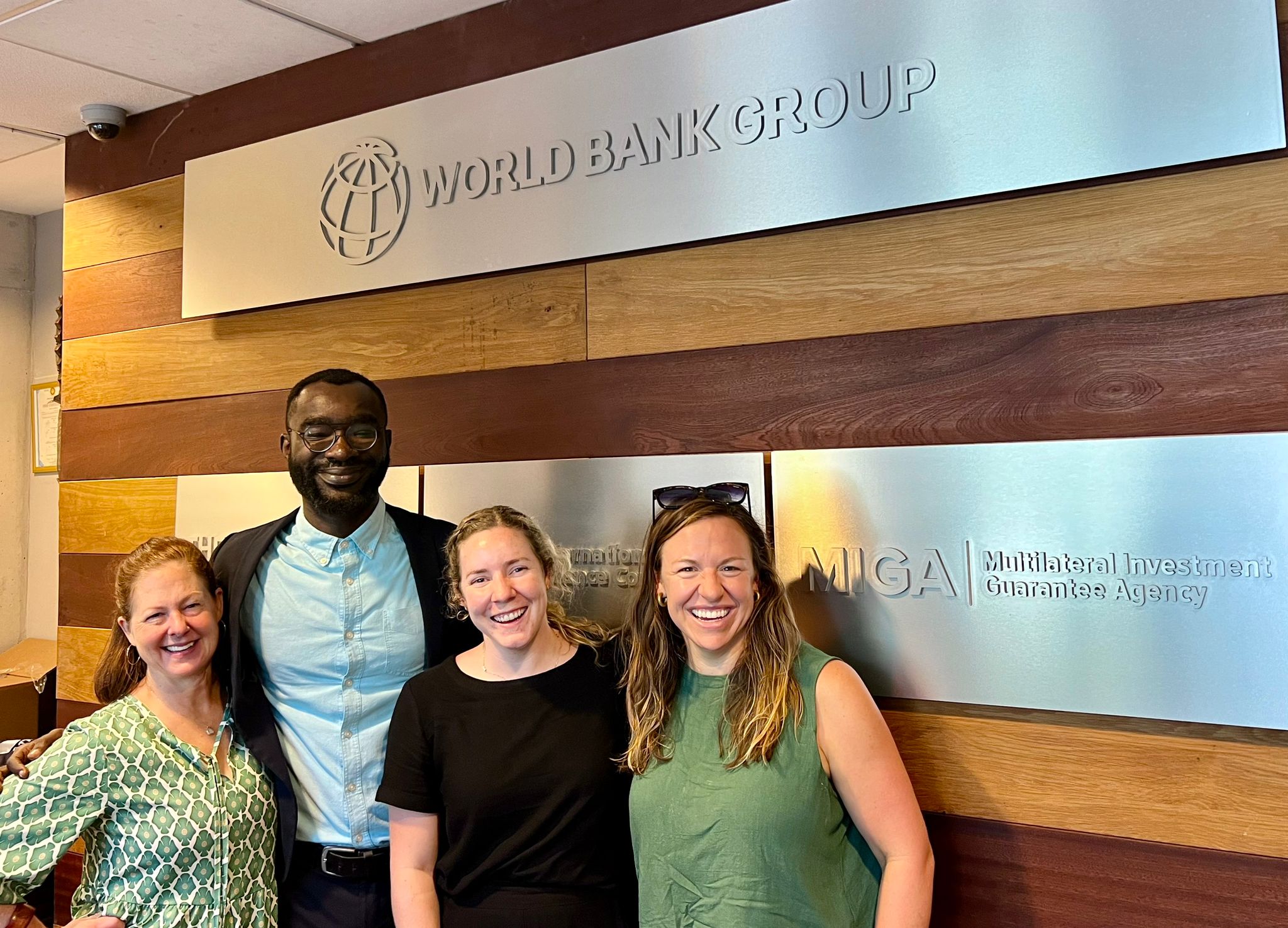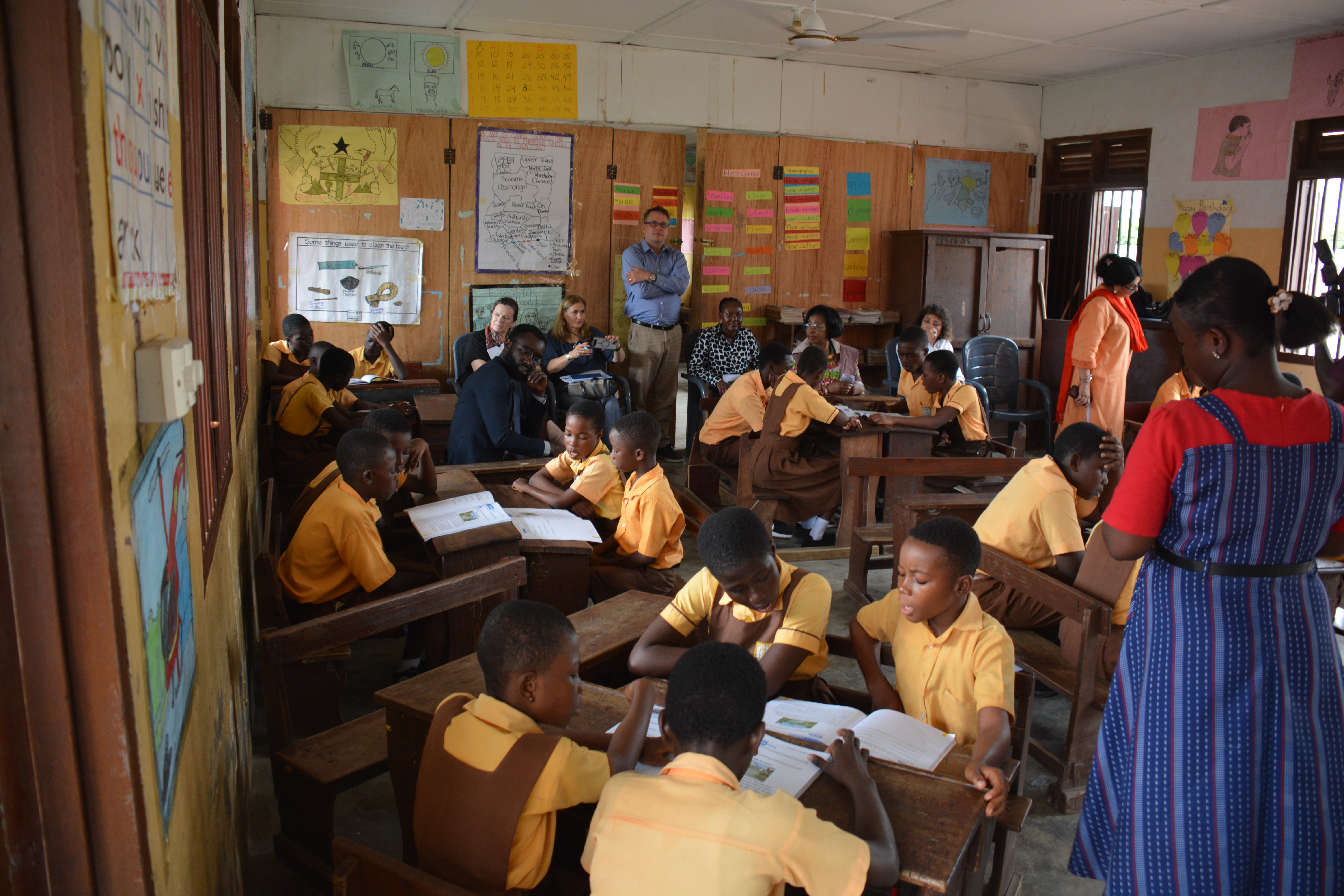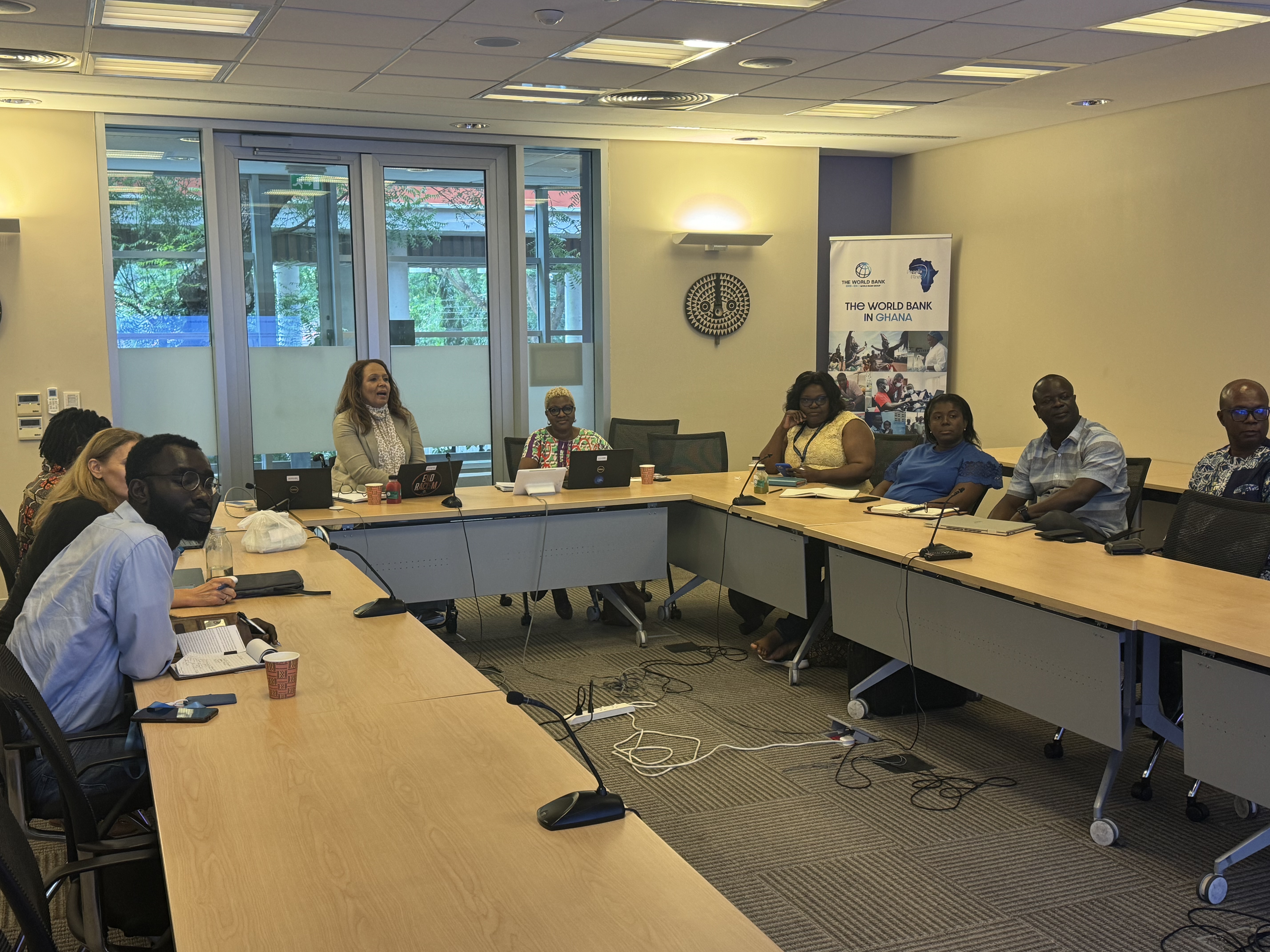
By Kyra Letsinger
Before coming to Vanderbilt, second-year Master of Public Health (MPH) student Joshua Atura received his bachelor’s degree in development education from the University for Development in his hometown of Tamale, Ghana, and his master’s in development studies from the University of Ghana, Legon. While working on his master’s thesis on determinants of postnatal care amongst mothers in Ghana, Atura watched the global healthcare landscape change drastically with the onset of the COVID-19 pandemic. During the data collection phase of his research, Atura found that new mothers were avoiding care due to fears of the coronavirus, leading him to consider a new research question: how can health care reach vulnerable populations (such as postpartum mothers) during a situation like a pandemic, especially those of lower socio-economic status? Atura’s research would lead to the realization that public health expanded beyond national borders, and that he wanted to use his experience in sexual and reproductive health research to improve health outcomes worldwide. Upon learning about Vanderbilt’s MPH program and its commitment to preparing students to work in low resource settings, Atura knew he had found the perfect place to further his educational and career journey.
A core objective of Vanderbilt University School of Medicine’s Master of Public Health program is the facilitation of active learning through both classroom and experiential training. One of the most transformative of these hands-on learning opportunities is the program’s required public health practicum, a supervised practical field experience designed to help students develop and apply the knowledge and skills acquired in the academic program in a real-world professional public health setting. This past summer, Atura completed his practicum experience with World Bank (WB) in one of its country offices in Accra, Ghana, a role in which he was able dive deeply into his passion for improving health outcomes in developing countries. He says experiences like this one are pivotal in helping him achieve his goal of leading global health governance in Sub-Saharan Africa
What is your practicum project?
I am currently supporting the health, nutrition, and population division to design a project on extending universal health coverage (UHC) for disadvantaged groups (persons with disabilities, mental health, sexual and gender-based violence survivors) and the urban poor in Ghana. This project seeks to hold policy dialogues and build on country-country learnings to improve primary healthcare policy and health financing as part of efforts to achieve UHC.

What made you choose this placement and project and how did you find out about the opportunity?
The World Bank is a leader in global heath governance, so my practicum at the Bank is the appropriate launching pad for my career as a global health leader and was an invaluable learning experience. I knew about the World Bank Summer Internship Program (BIP), and I spoke to the MPH team about my interest in participating in BIP. As part of preparing for the practicum through the Global Health Project Development class with Dr Marie Martin, I added to my MPH program objectives to emphasize how important this opportunity is to my career and professional development. Dr. Brad Hawkins and Dr. Elizabeth Rose introduced me to two WB Consultants, who guided me through the application and interview process, and it was a success. Out of 14,700+ applicants, 35 were selected for the 2024 BIP cohort globally, and I am super glad to be one of them.
What does the day to day look like with this placement?
Working at WB Ghana, I start my day at 8am with cup of hot cocoa drink (made from the local cocoa in Ghana, the 2nd largest producer of cocoa in the world). Each day, I set up my computer, respond to my emails, and then plan my day by updating my calendar and start real technical work depending on what I have on my agenda. I basically worked independently with little or no supervision (the WB hires the best and you are expected to work with integrity, and my site supervisor, Dr. Patrick Mullen, was very supportive). I go on break to the WB Cafeteria for a buffet lunch at 12:30pm. I usually go for the Ghanaian dishes, since I missed them so much. I resumed work at 1pm or 1:30pm depending on the progress on my objectives for the day. On some days, I spend most of my time attending trainings, work meetings or field visits. I determine the time I get off from work so, and I usually do so at 6-8pm.
How do you feel this experience has benefitted you as a public health professional in training?

This practicum experience is the best for me as a public health professional given that it was with a policy and financing organization where high-level public health decisions are made. I got to learn methods and strategies used to prepare, prevent and respond to public health situations in a low-resource settings. Most importantly, this opportunity has sharpened my technical skills in research and program design, and provided networking opportunities on my path to being an effective and capable international development professional working in low and middle-income countries. This project helped me learn about international health systems, and I seek to gain more knowledge on that through the lens of sexual and reproductive health.
What’s next for you work with World Bank?
I look forward to continuing to engage with World Bank in several pathways such as its Young Professional Program, Junior Professional Associate, and/or consultancy roles, and I am excited to continue contributing to the WB mission of ending poverty in a livable planet.
Now accepting applications for the Class of 2027 cohort, learn more about Vanderbilt’s Master of Public Health program and the Global Health Track